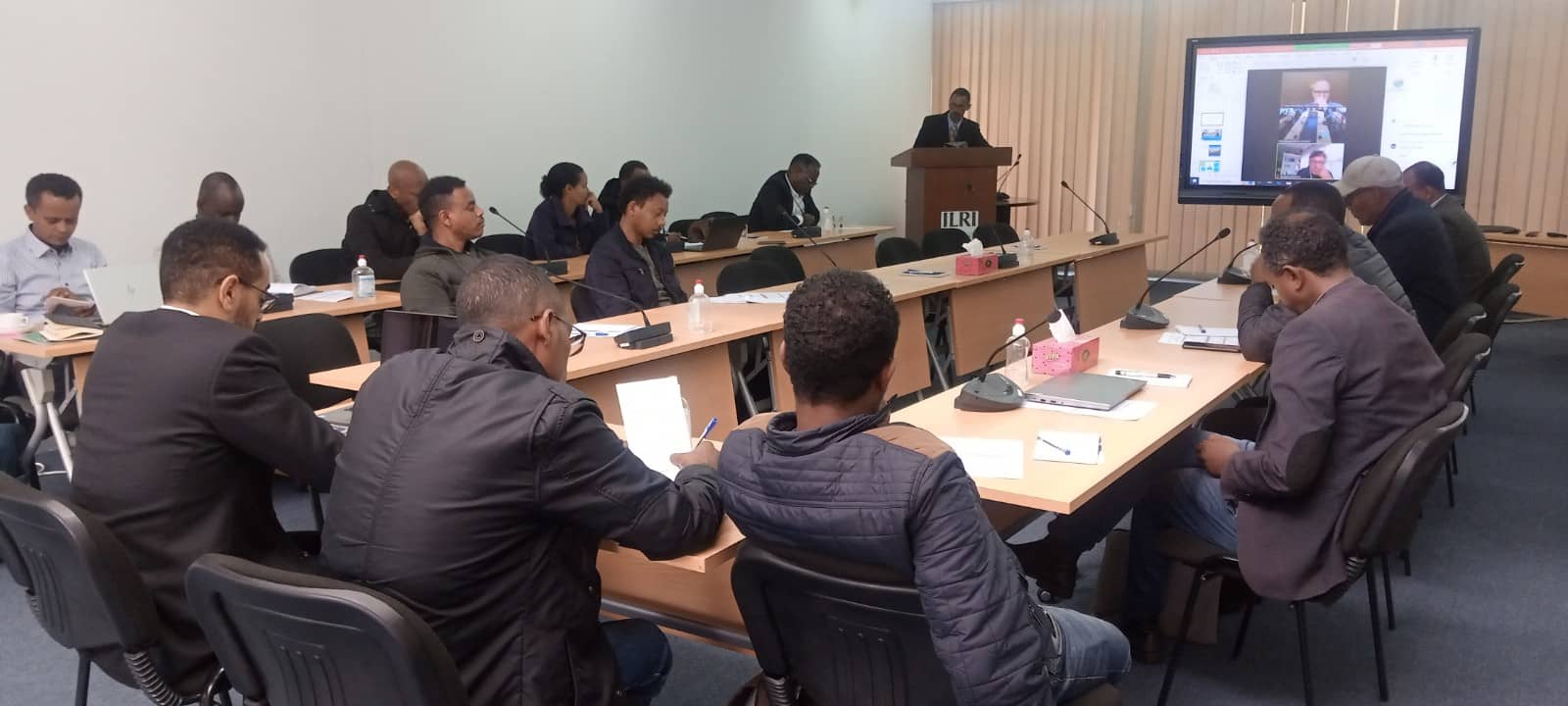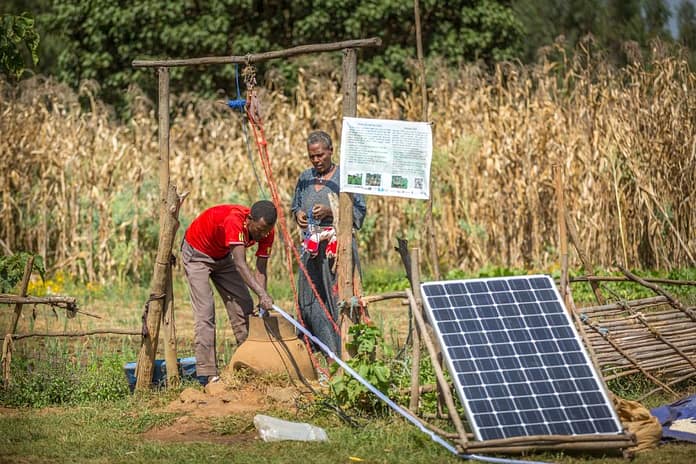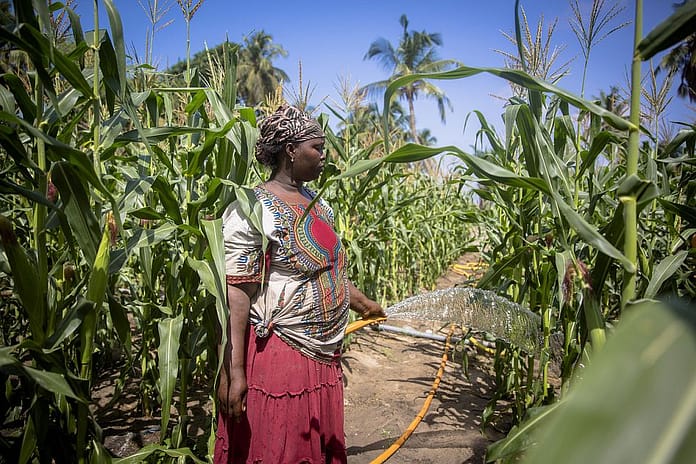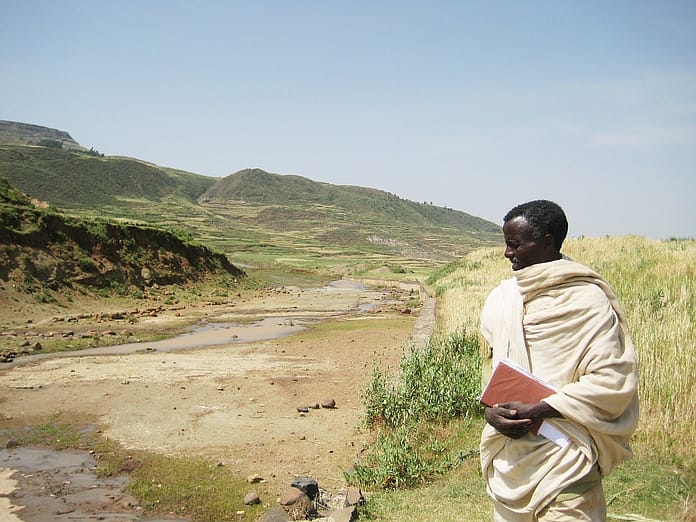Advancing irrigation development through public-private partnerships has the potential to increase agricultural output, enhance food and nutrition security, and potentially lift millions out of poverty.
By Dagmawi Melaku Abegaz, Muluken Elias Adamseged and Abdulkarim Seid

Small-scale Irrigation (SSI) in Ethiopia has the potential to alleviate poverty, stabilize agricultural production, mitigate the adverse effects of rainfall variability, and create employment for millions of youths and women. While the country has over 11 million hectares of irrigable land only a fraction of it (approx. 10%) is in use. The Ethiopian Ten Years Perspective Development Plan (2021-2030) places emphasis on freeing agricultural production from rain dependency, facilitating agricultural mechanization and irrigation technology, enhancing innovations and improving the role and participation of the private sector in agriculture. However, SSI development and management in Ethiopia is challenged by a growing demand of irrigation and high inefficiency even by Sub-Saharan African standards. Gaps in areas including scheme design, planning and construction, operation and management, financing and cost recovery, as well as traditional methods of service delivery continue to hamper its development. These persistent challenges indicate that the public sector alone will not suffice to meet the existing and growing needs for SSI in an efficient and sustainable manner.
Mobilizing private actors
Public-Private Partnerships (PPPs) have been envisaged as a game-changer in addressing the irrigation challenges faced by small-scale farmers. Global experience, with limitations and conditions, shows that PPPs can be utilized to introduce new technology and innovation, increase efficiency and service quality, as well as improve performance and financial sustainability in the water and irrigation sectors.
Ethiopia introduced the first national policy on PPP (2017), and subsequent PPP Proclamation No. 1076 (2018), PPP Directive (2018) and PPP Guidelines (2019) in commendable attempts to create the policy and legal framework to govern such partnerships. The Ministry of Agriculture (MoA) and stakeholders have drafted an Implementation Strategy for Public-Private Partnerships for SSI Development and Management (2021) to guide PPP in irrigation to help address some of the existing gaps and challenges in irrigation.
IWMI has been working with and promoting private sector involvement in irrigation, particularly through the Innovation Lab for Small-Scale Irrigation (ILSSI) and Africa Rising Projects. IWMI’s research for development projects have demonstrated that finance, as well as the supply and scalability of innovation, technology, and related services, can be enhanced by the private sector.
Public-private partnerships: Something to talk about
IWMI, with the support of Feed the Future Innovation Lab for Small Scale Irrigation (ILSSI), organized a multi-stakeholder dialogue to facilitate Ethiopia’s PPP Strategy Development for Small-Scale Irrigation Development and Management. Key stakeholders including representatives from various Ministries (Agriculture, Finance, Irrigation and Lowlands, Water and Energy), research institutes, development partners, and private sectors convened to discuss the draft PPP strategy.
The dialogue was unique as PPP specialists introduced the PPP process cycle and legal and policy frameworks, while stakeholders investigated the relatively new arena of PPP for SSI in Ethiopia. Private sector experience in scaling solar-based irrigation (from Togo), multiple-country experiences of the World Bank Group (from Zambia, Malawi and Republic of South Africa), and local experiences of the energy sector by Ethiopian Electric Power provided crucial insights.
PPP implementation can be a challenging endeavor because there are conceptual and structural issues to be resolved. Collaboration in strategy development is required to ensure alignment with the wider legal and policy frameworks and synergy with the national PPP structures. This would enable developing shared goals; mobilizing resources and expertise for strategy development; assessing and identifying strategic partners and establishing investment strategies; and identifying entry points for the private sector. Additionally, setting priorities for irrigation PPP is necessary as local experience is limited, and a gradual approach starting with testing potential projects for PPP can make a difference in the success of the endeavor.
The necessity of fostering communication and cooperation between important stakeholders both before and throughout the development of the PPP strategy was one of the roundtable’s significant takeaways. This includes between relevant public institutions as well as between the public and private sectors and other partners. IWMI has initiated research to identify the most suitable PPP modalities for SSI in the Ethiopian context. The research will also include piloting the identified PPP modalities.







